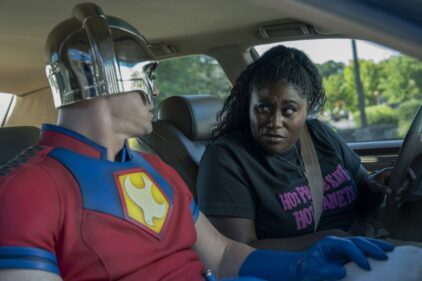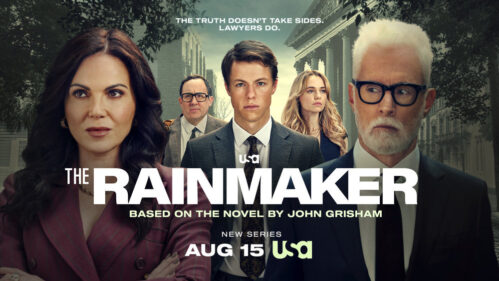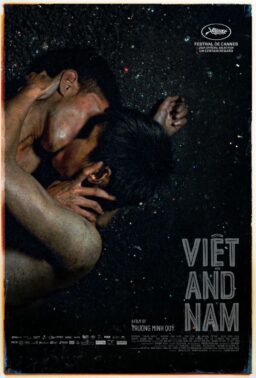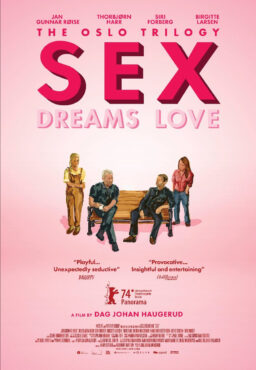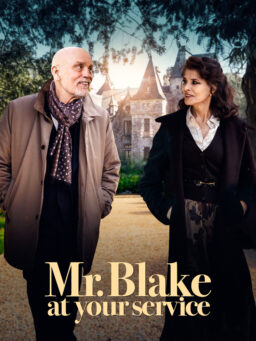“We’re young … That’s all I got, but it’s enough to drink to.”
In a sense, Starz’s “The Girlfriend Experience,” the most ambitious show to
premiere on the network to date, is captured in this toast early in the season. The series is about a person whose lack of definition, other than her beauty and youth, IS
her definition. At the start of the first season of this excellent show, she’s
a cipher, a woman we don’t really know but not in a traditional television
sense—it’s more that she doesn’t know herself. She questions why she’d rather
be alone than with other people. She goes to law school and gets an internship
at a major firm, but it doesn’t feel like she’s doing so out of any sort of
passion as much as predetermination. She is one of those beautiful young women
who lives with men who buy them whatever they want, but nothing they want really
matters. In the premiere, she’s told not to get subjective with the Cease and Desist
letters; just cut and paste. Her life is cut and paste. She knows that she’s
beautiful, and she takes control of her sexuality. She picks up a man at the
bar for a one-night stand, masturbating in front of him while she says, “Tell me
why you like this.” She’s in control, but she needs validation from her sexual
partner, however anonymous.

Christine Reade (Riley Keough, a name you may not know now
but you soon will with this performance and a breakthrough turn at Sundance in “Lovesong”)
gets a prized internship at Kirkland & Allen, a Chicago patent law firm.
She’s placed as an intern with David Tellis (Paul Sparks of “Boardwalk Empire” and
“House of Cards”), but she seems passively engaged with most things in her
life. When her friend Avery (the great Kate Lyn Sheil of “Sun Don’t Shine” and the upcoming “Kate
Plays Christine”) introduces her to the world of
high-priced escorts, Christine is intrigued. In one sense, she receives
validation that she would never get at her horrible job from the men who circle
her like moths to a flame, but it’s more that she pragmatically recognizes the
way the world works. In a later episode, she’ll say “Everybody’s paid to be
everywhere. It’s called an economy.” The lawyers for whom she works bill every
lunch and meeting, why shouldn’t she bill for her time?
Christine becomes Chelsea, first working for a high-priced
madam named Jacqueline. Her clients are the 1%, men with enough money to pay to
fly escorts to other cities for a $15,000 weekend. She charges $1,000 an hour
for a session, two hours minimum. She demands references. Writers/directors Amy
Seimetz and Lodge Kerrigan carefully walk a line in that they neither glamorize
nor demonize Christine’s new lifestyle. She gets honestly close to some of her
clients, forming friendships deeper than those at her “normal” job. And yet
Seimetz and Kerrigan carefully weave a sense of menace into the 13-episode
show. It starts to emerge not from something tawdry or traditionally dangerous
but from the halls of law offices and fancy hotels—places that look familiar
but begin to feel imposing, cold and manipulative.
I’m always drawn to shows that have a unique structure and
rhythm, and the pace of “The Girlfriend Experience” is one of its most daring
aspects. First, it’s a drama in half-hour episodes, which is almost unheard of.
For decades, we’ve been taught that 30 minutes equals comedy and 60 minutes
equals drama. But even the episodic structure is atypical in that it’s almost
more like a six-hour film broken down into thirteen 27-minute chunks. There are
beats episode to episode, and Seimetz and Kerrigan alternate directing duties,
but it builds more like a film than a season, and it’s telling that Starz is
making the whole season available on Sunday, April 10th. It has a cumulative power that can be hard to see episode to episode.
Even within episodes, “The Girlfriend Experience” allows for
pauses that television (other than “Rectify”) often does not. Sometimes these
pauses can be presented in a way that feels too self-aware, but it starts to become a show with its own voice around episode five, and that voice rarely
falters from there. Keough has been handed a very difficult part, a woman who
questions whether or not she’s a sociopath at one point, and sees the world as
a series of economic interactions. There are times when the role seems poorly
defined, whether on the page or the choices Keough makes, but it’s a confident
turn nonetheless, as she’s in almost every scene, and they’re often physically
revealing without being sleazy. It’s a show that doesn’t really feel like
anything else on TV, working at a pace that echoes independent cinema more than peak TV (and Shane Carruth even does the minimal score).
“The Girlfriend Experience” is about opulence and sex, but
it’s more about control, competition, and the reality of a young woman who
realizes that she’ll never pay off her student loans working at a corrupt law firm. She is presented an opportunity, and she takes it. No, “The
Girlfriend Experience” is not a validation of the escort lifestyle—there are
very dark chapters within it and lessons learned—but neither does it feel like
a condemnation. A story about people who get paid for sex that neither
glamorizes it nor serves as a moral message about why to avoid it. That’s an amazingly
thin line to walk. “The Girlfriend Experience” pulls it off.


